
Adelaide: The Charming Heart of South Australia
Adelaide, the capital of South Australia, is a city that beautifully blends urban excitement with natural beauty. Known for its vibrant cultural scene, Adelaide is home to numerous festivals, art galleries, and museums. The city's architecture is a delightful mix of historic buildings and modern designs, creating an atmosphere that is both inviting and inspiring. For nature lovers, Adelaide offers a wealth of outdoor activities. The city is surrounded by beautiful parks, gardens, and beaches. The Adelaide Botanic Garden is a must-visit for its stunning landscapes and diverse plant species. Just a short drive away, you can explore the Adelaide Hills, known for their picturesque vineyards and charming villages. Foodies will find a paradise in Adelaide's diverse culinary scene. From world-class restaurants to bustling food markets like the Adelaide Central Market, there's something to satisfy every palate. The city's wine regions, including the Barossa Valley and McLaren Vale, are renowned for their excellent wines and welcoming cellar doors. Adelaide is also a gateway to some of Australia's most famous destinations. The nearby Kangaroo Island offers unique wildlife experiences and breathtaking scenery, while the Flinders Ranges provide a rugged and dramatic landscape for adventurers. With its friendly locals and relaxed vibe, Adelaide is a perfect destination for travelers seeking both excitement and tranquility.
Local tips in Adelaide
- Visit during the 'Mad March' festival season for a lively experience with events like the Adelaide Festival and WOMADelaide.
- Take advantage of the free tram service in the city center for easy and convenient exploration.
- Don't miss a trip to the Adelaide Central Market for fresh produce and local delicacies.
- Explore the nearby wine regions with a day trip to Barossa Valley or McLaren Vale.
- For the best beach experience, head to Glenelg Beach, which is easily accessible by tram from the city center.
Neighbourhoods in Adelaide
Adelaide: The Charming Heart of South Australia
Adelaide, the capital of South Australia, is a city that beautifully blends urban excitement with natural beauty. Known for its vibrant cultural scene, Adelaide is home to numerous festivals, art galleries, and museums. The city's architecture is a delightful mix of historic buildings and modern designs, creating an atmosphere that is both inviting and inspiring. For nature lovers, Adelaide offers a wealth of outdoor activities. The city is surrounded by beautiful parks, gardens, and beaches. The Adelaide Botanic Garden is a must-visit for its stunning landscapes and diverse plant species. Just a short drive away, you can explore the Adelaide Hills, known for their picturesque vineyards and charming villages. Foodies will find a paradise in Adelaide's diverse culinary scene. From world-class restaurants to bustling food markets like the Adelaide Central Market, there's something to satisfy every palate. The city's wine regions, including the Barossa Valley and McLaren Vale, are renowned for their excellent wines and welcoming cellar doors. Adelaide is also a gateway to some of Australia's most famous destinations. The nearby Kangaroo Island offers unique wildlife experiences and breathtaking scenery, while the Flinders Ranges provide a rugged and dramatic landscape for adventurers. With its friendly locals and relaxed vibe, Adelaide is a perfect destination for travelers seeking both excitement and tranquility.
When is the best time to go to Adelaide?
Iconic landmarks you can’t miss
Adelaide Botanic Garden
Explore the Adelaide Botanic Garden, a serene oasis filled with diverse plant life, stunning landscapes, and a rich history in the heart of South Australia.
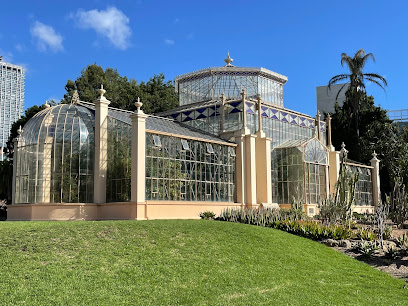
Adelaide Zoo
Discover wildlife conservation in the heart of Adelaide at the historic Adelaide Zoo, home to over 250 animal species and lush botanic surrounds.
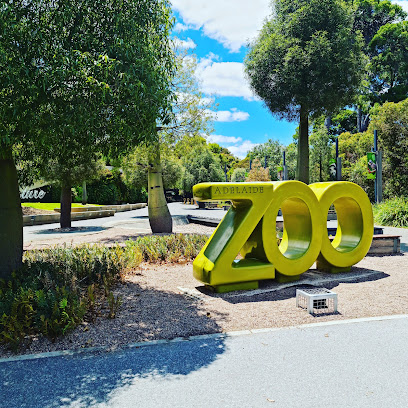
South Australian Museum
Discover the rich cultural heritage and natural wonders of South Australia at the South Australian Museum, a must-visit for every traveler.

Art Gallery of South Australia
Explore the rich artistic heritage at the Art Gallery of South Australia, featuring diverse collections and captivating exhibitions in the heart of Adelaide.

Victoria Square
Explore the beauty of Victoria Square, a vibrant urban park in Adelaide, perfect for relaxation, cultural events, and enjoying nature's tranquility.
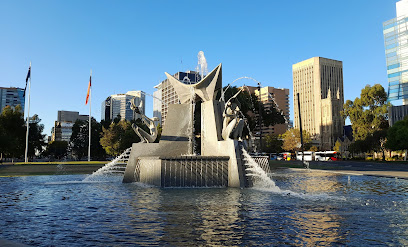
Mount Lofty Summit
Discover the breathtaking vistas and invigorating trails at Mount Lofty Summit, a scenic gem in South Australia perfect for outdoor enthusiasts and nature lovers.
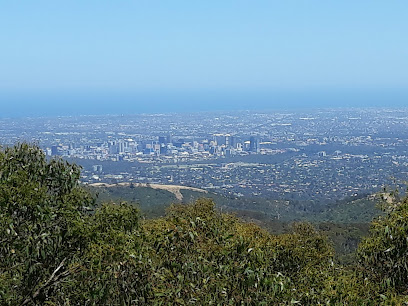
Adelaide Himeji Garden
Experience a slice of Japan in South Australia: a serene garden blending Japanese tradition with Adelaide's charm.
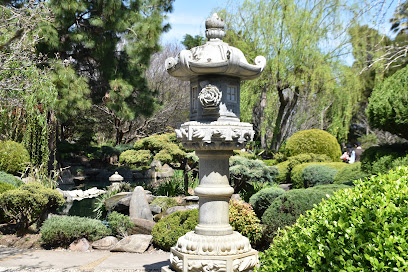
Botanic Park
Escape to Adelaide's Botanic Park: a historic green oasis for relaxation, events, and natural beauty, adjacent to the city center.
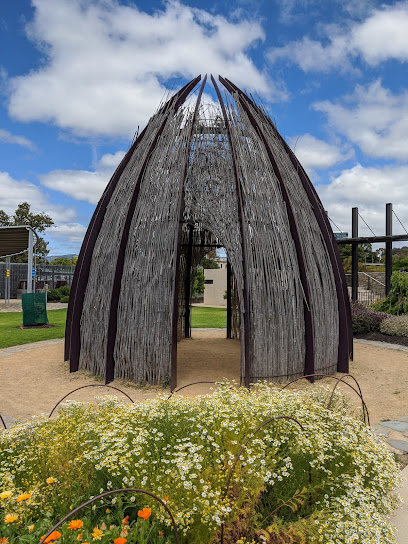
Rymill Park
Discover the beauty of Rymill Park, a serene urban oasis in Adelaide featuring lush landscapes, recreational activities, and vibrant community events.
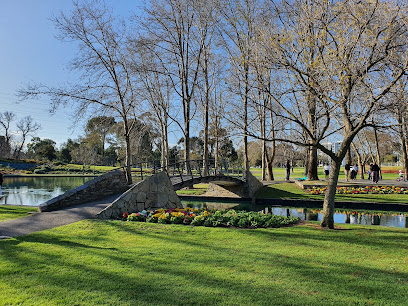
National Wine Centre of Australia
Explore the National Wine Centre of Australia for an unforgettable journey through wine and culture in the heart of Adelaide's Botanic Gardens.
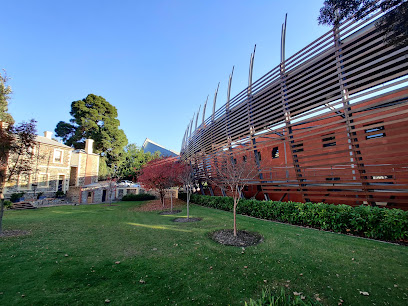
Mindshift Escape Rooms Adelaide
Adelaide's top-rated escape room center offering immersive adventures for families, friends, and corporate teams. Test your wits and escape the ordinary!
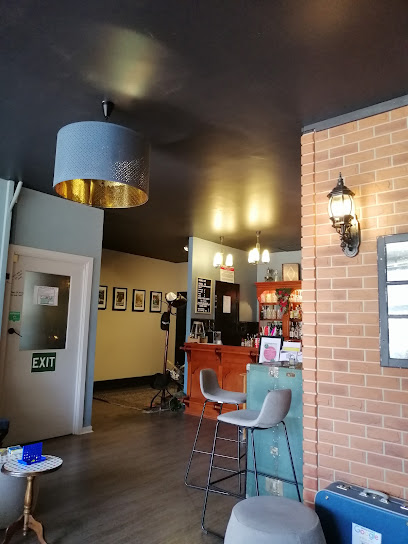
Elder Park
Discover the tranquil beauty of Elder Park, a delightful urban park in Adelaide perfect for relaxation, picnics, and scenic views of the River Torrens.
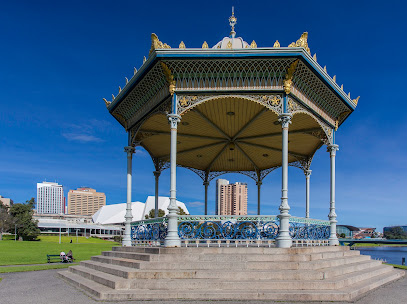
Carrick Hill
Explore Carrick Hill, a captivating historical landmark in South Australia, featuring stunning gardens, an art gallery, and rich cultural experiences.
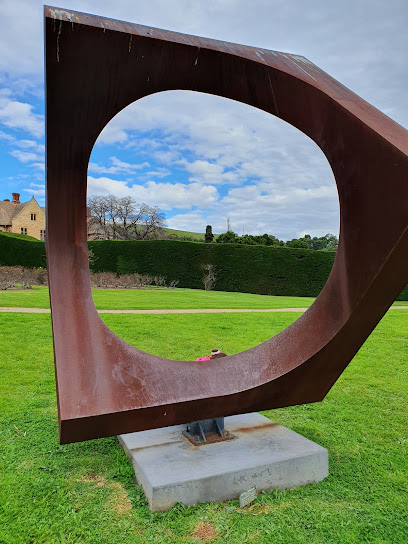
Malls Balls
Experience the vibrant heart of Adelaide at the Malls Balls, an iconic sculpture reflecting the city's spirit and creativity in Rundle Mall.
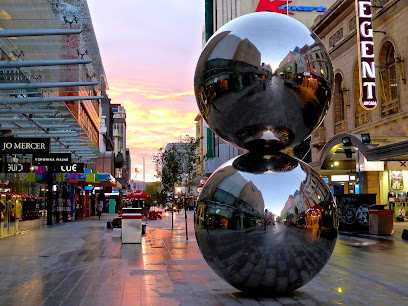
Adelaide Gaol
Discover the intriguing history of Adelaide Gaol, a historical prison turned museum, and delve into the stories of Australia's penal past.

Unmissable attractions to see
Adelaide Oval
Experience the thrill of sports and entertainment at Adelaide Oval, an iconic destination in North Adelaide known for its stunning architecture and vibrant atmosphere.
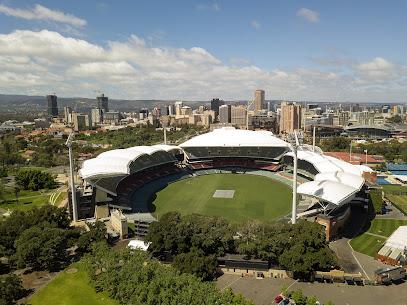
Adelaide Botanic Garden
Discover the beauty of nature at Adelaide Botanic Garden, a serene escape for tourists in the heart of South Australia with diverse plants and stunning landscapes.
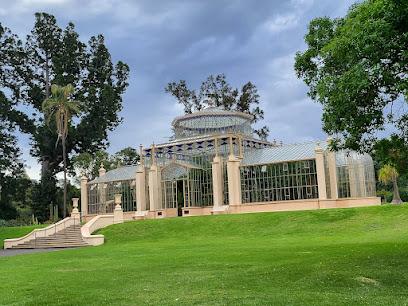
Adelaide Zoo
Discover a world of wildlife in the heart of the city at Adelaide Zoo, home to over 250 species and dedicated to conservation.
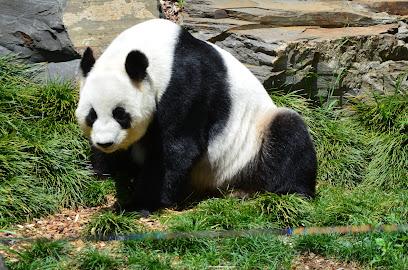
South Australian Museum
Explore the rich biodiversity and cultural heritage of Australia at the South Australian Museum, a premier destination for tourists in Adelaide.
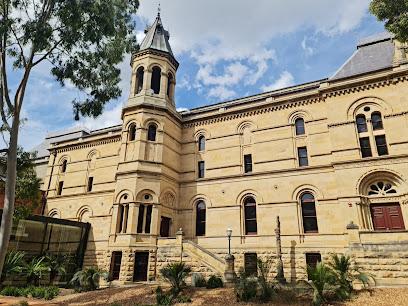
SkyCity Adelaide
Experience the thrill of gaming, exquisite dining, and vibrant nightlife at SkyCity Adelaide, the ultimate entertainment destination in South Australia.
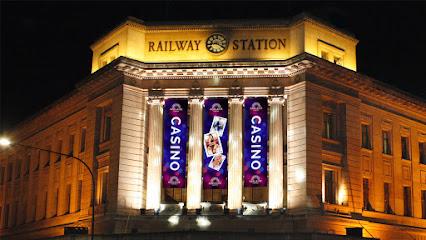
Cleland National Park
Explore Cleland National Park: A Natural Paradise in South Australia with Breathtaking Scenery and Unique Wildlife Encounters.
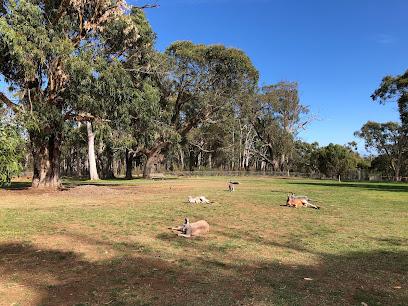
Art Gallery of South Australia
Explore the Art Gallery of South Australia: A cultural treasure showcasing a diverse collection of Australian and international art, free to all visitors.
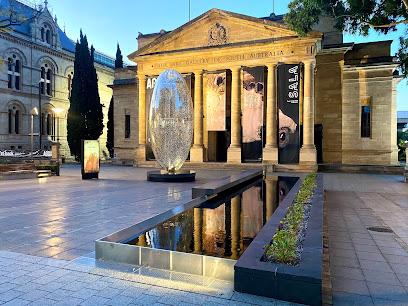
Mount Lofty Summit
Experience the stunning views and hiking adventures at Mount Lofty Summit in South Australia, a nature lover's paradise.
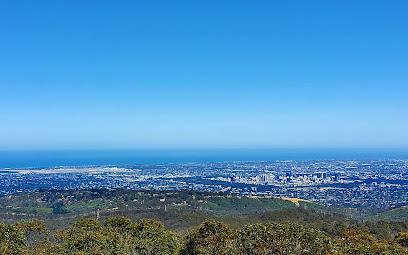
Beerenberg Farm
Experience the flavors of South Australia at Beerenberg Farm – a delightful farm shop, café, and culinary school in Hahndorf.
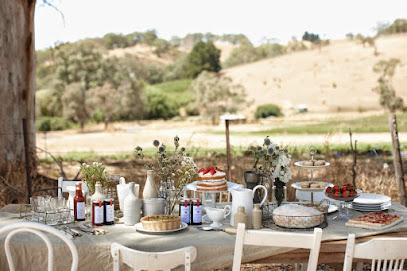
Adelaide Festival Centre
Experience world-class performances and vibrant cultural events at the heart of Adelaide, South Australia's premier arts destination.
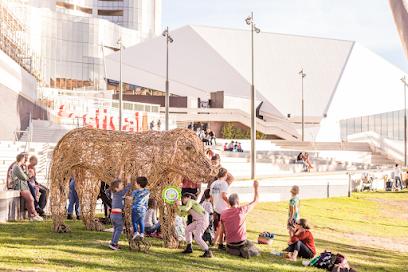
Adelaide Himeji Garden
Discover the beauty and tranquility of Adelaide Himeji Garden, an exquisite Japanese garden in the heart of the city, perfect for relaxation and reflection.
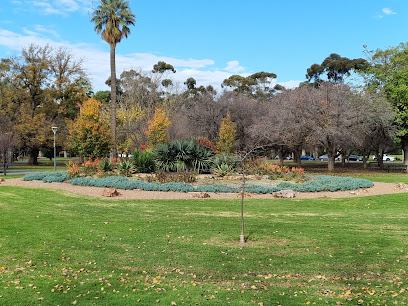
Morialta Conservation Park
Explore Morialta Conservation Park, a stunning national park in South Australia featuring breathtaking waterfalls, scenic trails, and diverse wildlife in a natural paradise.
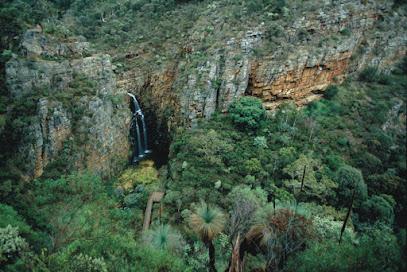
Cleland Wildlife Park
Get up close with kangaroos, koalas, and other native Australian animals in a natural setting, just minutes from Adelaide!
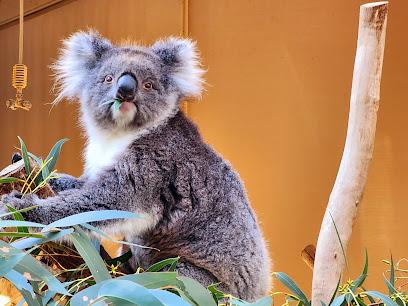
Rymill Park
Discover the tranquil beauty of Rymill Park in Adelaide, a perfect escape for nature lovers and city explorers alike.
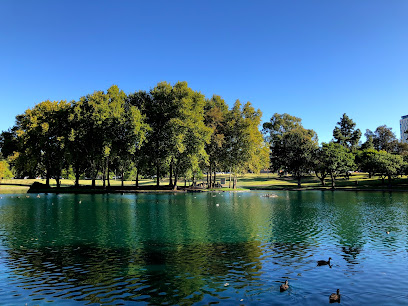
Chateau Yaldara
Discover the historic charm and exquisite wines of Chateau Yaldara, a Barossa Valley icon since 1947. A must-visit winery experience!
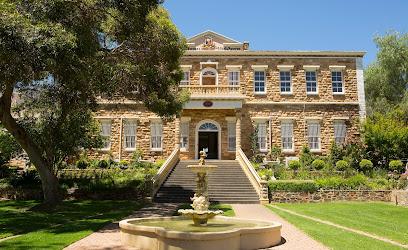
Essential places to dine
Osteria Oggi
Discover authentic Italian cuisine at Osteria Oggi in Adelaide - where tradition meets modern dining in a vibrant setting.
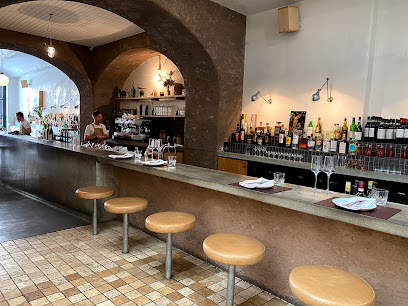
Bread & Bone
Experience culinary excellence at Bread & Bone in Adelaide with gourmet burgers and unique craft beers in a vibrant setting.
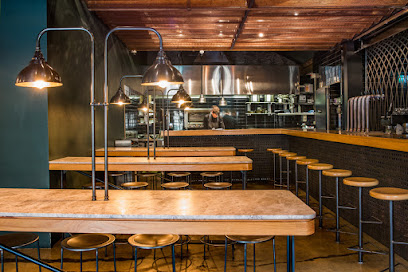
2KW Bar & Restaurant
Discover exquisite dining with breathtaking views at 2KW Bar & Restaurant in Adelaide - where culinary excellence meets vibrant atmosphere.
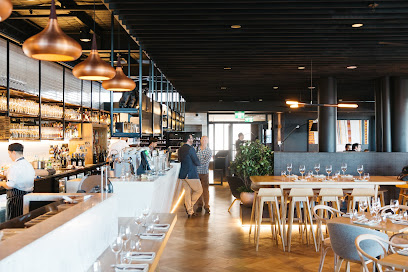
Luigi Delicatessen
Experience authentic Italian cuisine at Luigi Delicatessen in Adelaide - where every meal feels like a celebration.
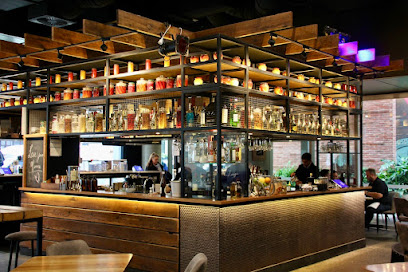
Marrakech Restaurant
Discover the rich tastes of Morocco at Marrakech Restaurant in North Adelaide - where every meal is a journey into flavor.
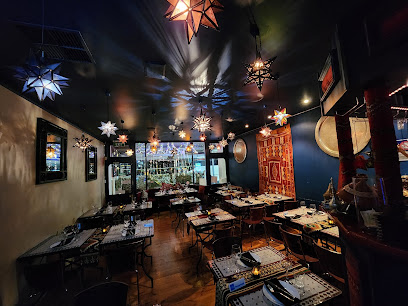
La Boca Bar and Grill Adelaide
Experience authentic Argentinian cuisine in Adelaide at La Boca Bar and Grill – where every meal is a celebration of flavor.
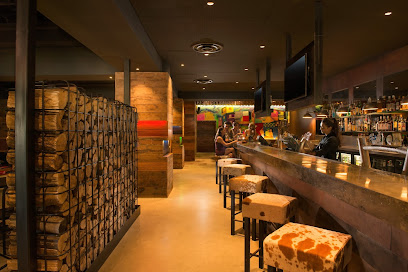
Golden Boy
Experience the vibrant essence of Thailand at Golden Boy in Adelaide – where culinary artistry meets authentic flavors.
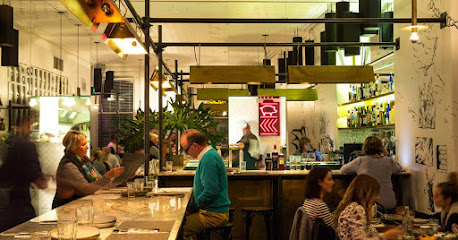
Shobosho
Discover the vibrant flavors of Japan at Shobosho in Adelaide, where traditional meets contemporary in an unforgettable dining experience.
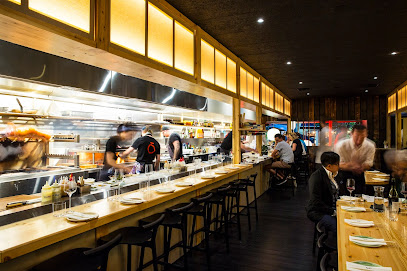
Part Time Lover
Discover the vibrant flavors of Adelaide at Part Time Lover – a culinary haven offering unique dishes and exceptional service.
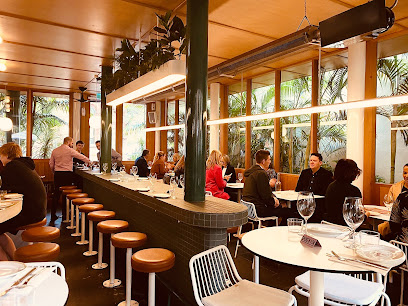
Windy Point Restaurant
Experience modern Australian fine dining at Windy Point Restaurant with stunning views over Belair National Park.
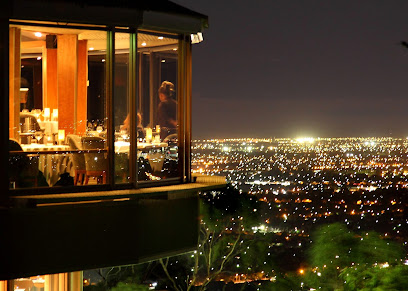
Peel St
Experience the vibrant fusion of modern Australian cuisine at Peel St, where each dish tells a story through its rich flavors.
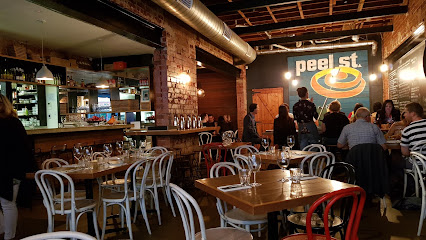
Africola
Discover Africola in Adelaide - A vibrant restaurant celebrating unique African flavors through innovative dishes and a lively atmosphere.
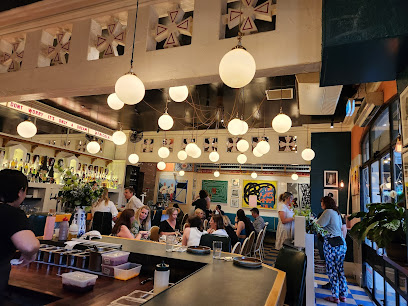
Chianti
Experience authentic Italian cuisine at Chianti in Adelaide - where tradition meets taste in an elegant setting.
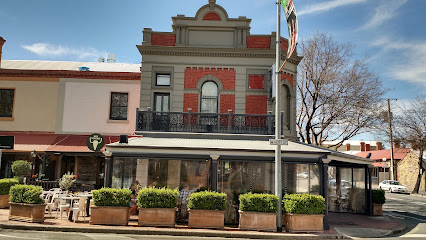
Mandoo
Discover authentic Korean dumplings at Mandoo in Adelaide - a culinary gem blending tradition with modern flavors.
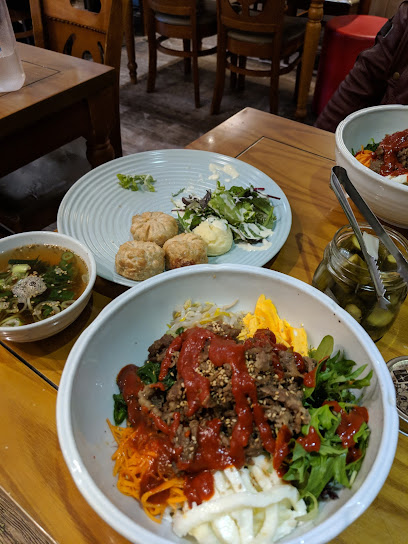
Parlamento
Experience authentic Italian cuisine at Parlamento in Adelaide - where every dish tells a story of tradition and flavor.
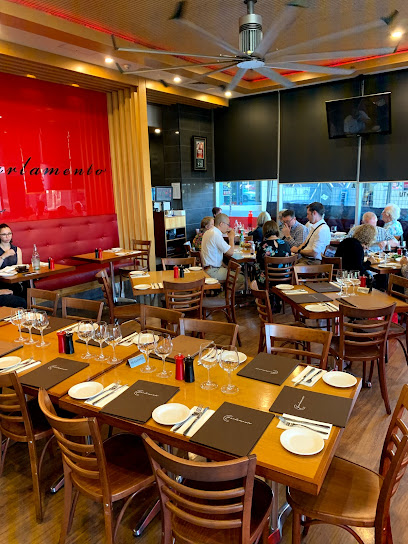
Markets, malls and hidden boutiques
Rundle Mall
Explore Rundle Mall in Adelaide: A vibrant shopping and cultural hub filled with diverse shops, dining, and street performances.
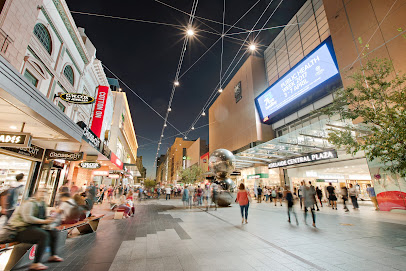
Adelaide Central Market
Discover the flavors and vibrant culture of South Australia at the iconic Adelaide Central Market, a must-visit culinary destination.
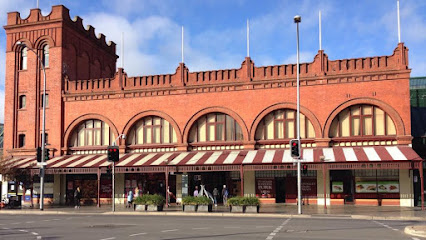
Myer Adelaide
Explore Myer Adelaide for an unparalleled shopping experience featuring clothing, homewares, toys, and more in the heart of Rundle Mall.
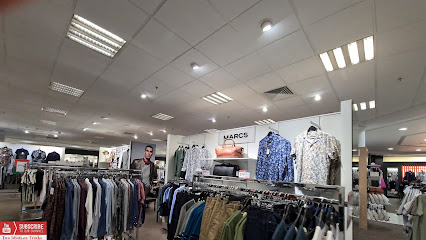
Mitcham Square Shopping Centre
Discover the charm of Mitcham Square Shopping Centre, a bustling hub for shopping, dining, and entertainment in South Australia.
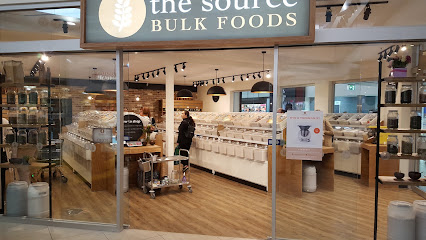
Adelaide Central Plaza Shopping Centre
Discover the ultimate shopping experience at Adelaide Central Plaza, where fashion meets fun in the heart of Adelaide.
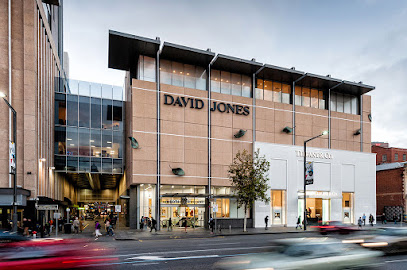
Mad Zombie Collectables
Explore Mad Zombie Collectables in Adelaide for unique gifts, collectibles, and a vibrant pop culture experience.
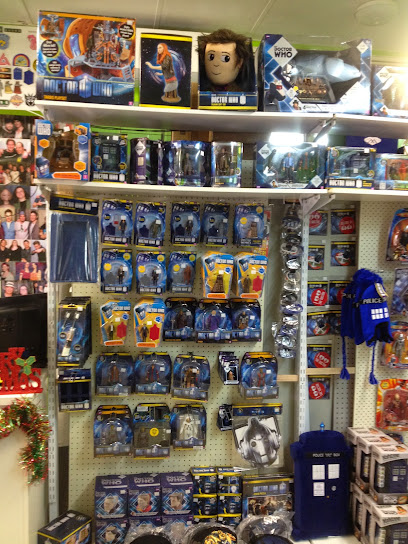
The Port Adelaide Emporium
Explore a treasure trove of antiques, vintage clothing, and local art at The Port Adelaide Emporium, a must-visit destination for unique finds.
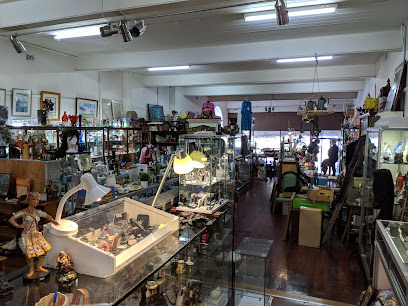
Midwest Trader
Explore the charm of vintage fashion at Midwest Trader, Adelaide's premier vintage clothing store with unique finds and a friendly atmosphere.
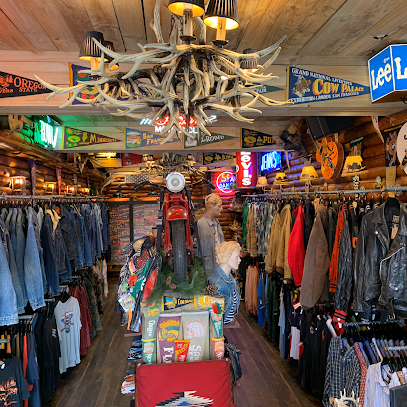
House of Dudley
Discover the House of Dudley, a premier homewares store in Parkside, South Australia, offering stylish and unique home decor and essentials.
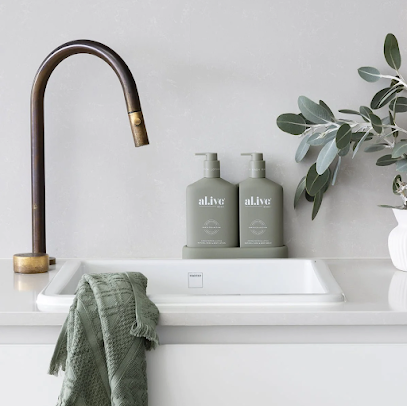
Australia the Gift - Australian Souvenir & Gifts Store
Discover the heart of Australia at Australia the Gift, your go-to destination for unique souvenirs and local treasures in Adelaide.
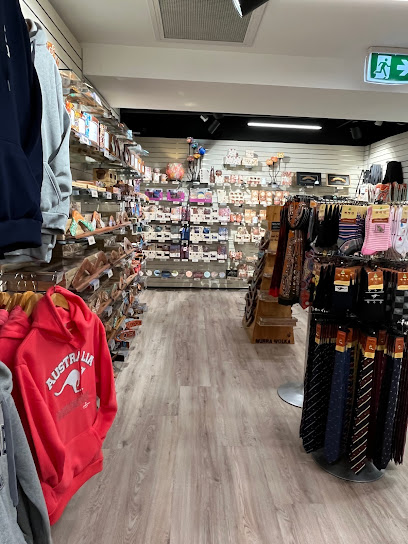
Have You Met Charlie?
Explore the eclectic gifts and local art at Have You Met Charlie?, a must-visit shop in Adelaide Arcade for unique souvenirs.
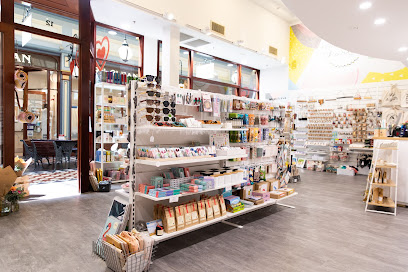
Kaisercraft Rundle Mall
Discover a unique shopping experience at Kaisercraft Rundle Mall, where exceptional gifts and crafts await in the heart of Adelaide.
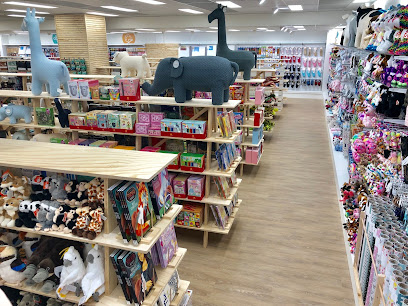
Essence of Australia
Discover the essence of Australia at Essence of Australia, your ultimate stop for unique souvenirs and local treasures in Adelaide Arcade.
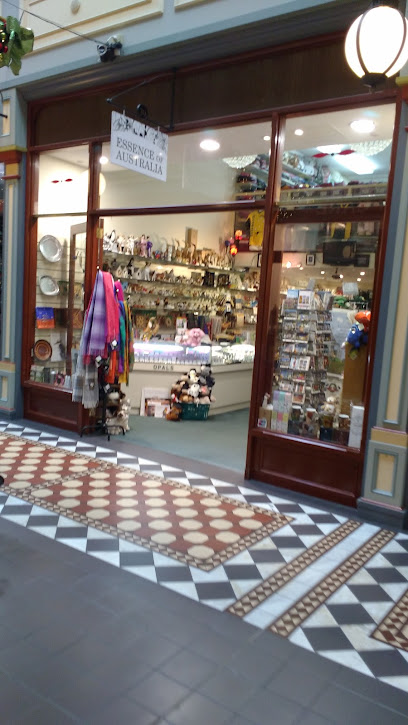
Etienne
Explore Etienne, Unley's premier gift shop, and discover unique homewares, clothing, and garden treasures that celebrate South Australian culture.
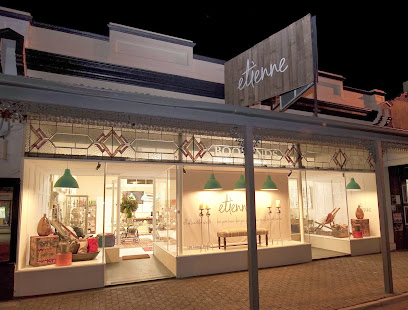
Push Pin Boutique Vintage
Explore a treasure trove of unique vintage clothing and accessories at Push Pin Boutique Vintage in Adelaide, where every piece tells a story.
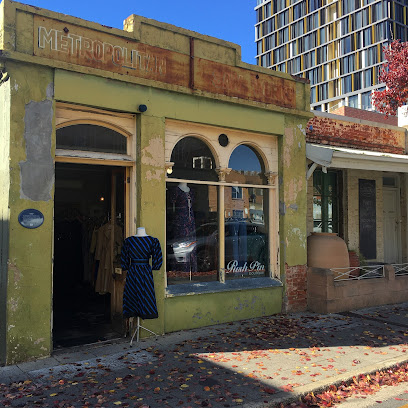
Essential bars & hidden hideouts
2KW Bar & Restaurant
Discover the perfect blend of stunning views, exquisite dining, and vibrant nightlife at 2KW Bar & Restaurant in Adelaide.
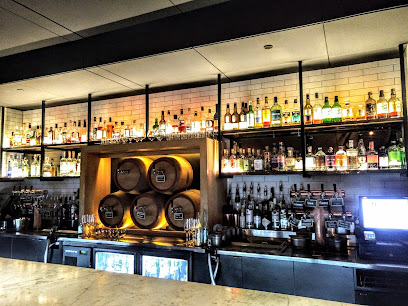
Hains & Co
Discover the vibrant nautical-themed cocktail experience at Hains & Co, Adelaide's premier bar for unique drinks and lively atmosphere.
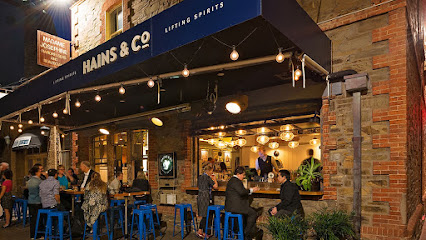
Union Hotel - Best Pub in Adelaide
Discover the Union Hotel in Adelaide: a vibrant gastropub offering delicious Australian cuisine and an inviting atmosphere for all visitors.
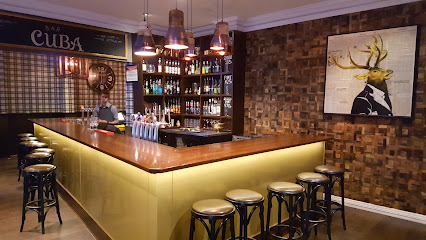
The Gallery
Experience the vibrant atmosphere of The Gallery in Adelaide, a unique bar with a rooftop setting perfect for unwinding and enjoying delicious food and drinks.
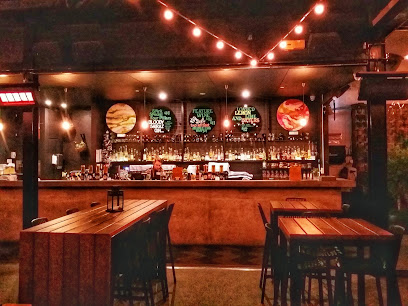
Maybe Mae
Experience Adelaide's nightlife at Maybe Mae, a chic bar known for unique cocktails and a vibrant atmosphere in the heart of the city.
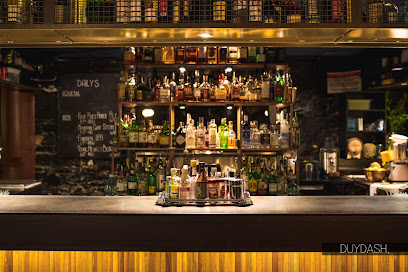
La Buvette Drinkery
Experience the vibrant atmosphere and exquisite flavors at La Buvette Drinkery, Adelaide's premier bar and bistro, ideal for wine lovers and cocktail enthusiasts.
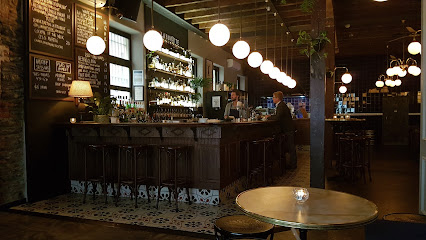
The Howling Owl
Discover The Howling Owl in Adelaide, where creative cocktails and a vibrant atmosphere await you for an unforgettable night out.
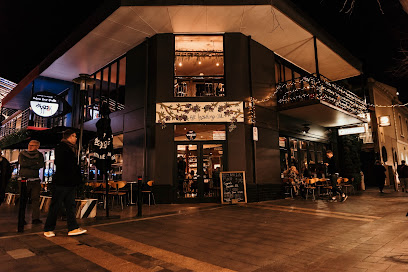
Fumo Blu
Experience Fumo Blu, Adelaide's chic cocktail bar blending vibrant nightlife with inventive drinks and a stylish lounge atmosphere.
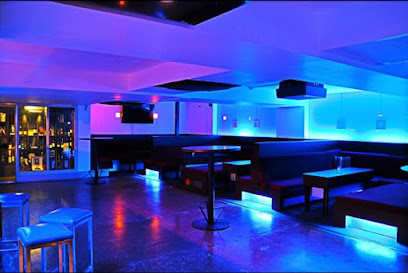
HENNESSY Rooftop Bar
Discover HENNESSY Rooftop Bar in Adelaide, where stunning views meet exquisite drinks for an unforgettable nightlife experience.
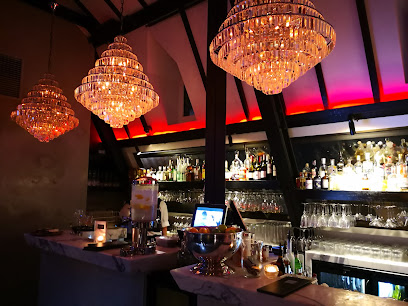
Mr. Goodbar
Discover Adelaide's nightlife at Mr. Goodbar, a cocktail bar known for its creative drinks and vibrant atmosphere.
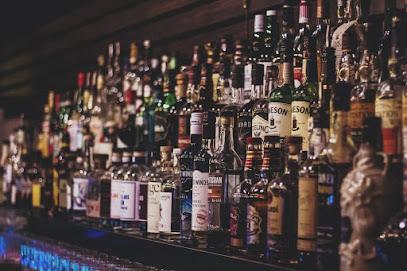
The Bibliotheca Bar and Book Exchange
Experience the perfect blend of cocktails and literature at The Bibliotheca Bar and Book Exchange in Adelaide, a unique haven for book lovers and cocktail enthusiasts.
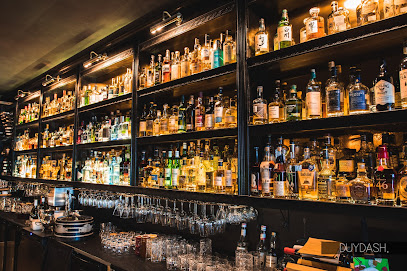
Proof Bar
Experience the vibrant nightlife of Adelaide at Proof Bar, where expertly crafted cocktails and a lively atmosphere await.
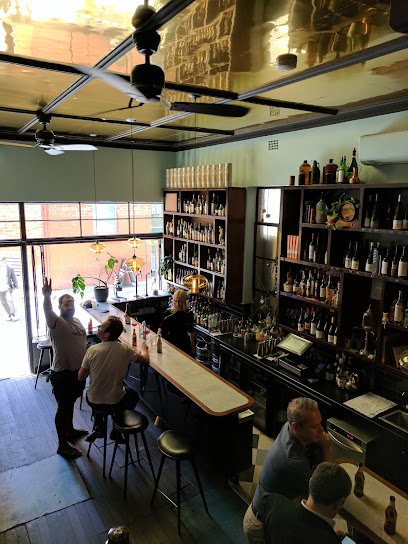
Bar Torino
Discover the vibrant nightlife and exquisite cuisine at Bar Torino, a must-visit bar and restaurant in the heart of Adelaide.
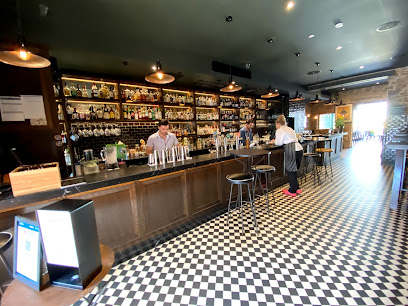
Pink Moon Saloon - Bar and Cocktails
Discover the lively Pink Moon Saloon in Adelaide, where expertly crafted cocktails and a vibrant atmosphere create an unforgettable experience for tourists.
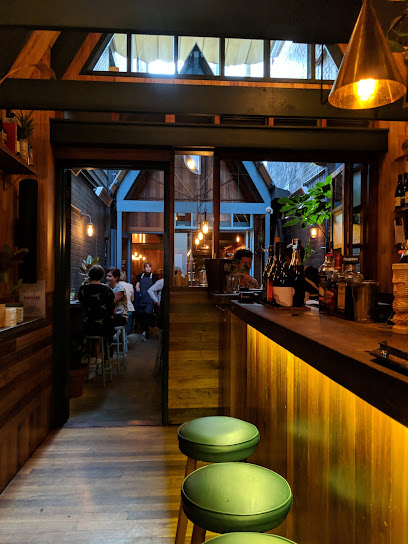
Therapy Cocktail Bar
Therapy Cocktail Bar in Adelaide: A cocktail haven blending creativity and ambiance for an unforgettable night out.
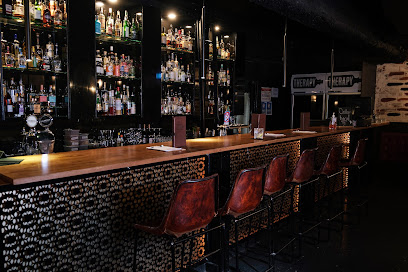
Local Phrases
-
- HelloG'day
[g'day] - GoodbyeSee ya
[see ya] - YesYeah
[yeah] - NoNah
[nah] - Please/You're welcomeNo worries
[no worries] - Thank youCheers
[cheers] - Excuse me/SorrySorry mate
[sorry mate] - How are you?How ya going?
[how ya going] - Fine. And you?Good. You?
[good. you] - Do you speak English?You speak English?
[you speak English] - I don't understandI don't get ya
[i don't get ya]
- HelloG'day
-
- I'd like to see the menu, pleaseCan I check the menu?
[can i check the menu] - I don't eat meatI'm vego
[i'm vego] - Cheers!Cheers!
[cheers] - I would like to pay, pleaseCan I pay?
[can i pay]
- I'd like to see the menu, pleaseCan I check the menu?
-
- Help!Help!
[help] - Go away!Bugger off!
[bugger off] - Call the Police!Ring the cops!
[ring the cops] - Call a doctor!Get a doc!
[get a doc] - I'm lostI'm lost
[i'm lost] - I'm illI'm crook
[i'm crook]
- Help!Help!
-
- I'd like to buy...I wanna buy...
[i wanna buy] - I'm just lookingJust browsing
[just browsing] - How much is it?How much?
[how much] - That's too expensiveToo pricey mate
[too pricey mate] - Can you lower the price?Can you do a deal?
[can you do a deal]
- I'd like to buy...I wanna buy...
-
- What time is it?What's the time?
[what's the time] - It's one o'clockIt's one
[it's one] - Half past (10)Half ten
[half ten] - MorningMorning
[morning] - AfternoonArvo
[arvo] - EveningEvening
[evening] - YesterdayYesterday
[yesterday] - TodayToday
[today] - TomorrowTomorrow
[tomorrow] - 1One
[one] - 2Two
[two] - 3Three
[three] - 4Four
[four] - 5Five
[five] - 6Six
[six] - 7Seven
[seven] - 8Eight
[eight] - 9Nine
[nine] - 10Ten
[ten]
- What time is it?What's the time?
-
- Where's a/the...?Where's the...?
[where's the] - What's the address?What's the addy?
[what's the addy] - Can you show me (on the map)?Can you show me (on the map)?
[can you show me on the map] - When's the next (bus)?When's the next (bus)?
[when's the next bus] - A ticket (to ....)A ticket (to ....)
[a ticket to]
- Where's a/the...?Where's the...?
History of Adelaide
-
The history of Adelaide begins with the early exploration by European settlers. In 1836, Colonel William Light selected the site for the city, which was named after Queen Adelaide, the consort of King William IV. The city was designed with a grid layout, featuring wide streets and public squares, which remains a hallmark of Adelaide's urban design to this day.
-
Before European settlement, the Adelaide Plains were home to the Kaurna people. They had a rich culture and deep connection to the land. The Kaurna language and traditions have seen a revival in recent years, and efforts are being made to acknowledge and integrate their heritage into the city's identity.
-
The 1840s marked a period of rapid economic growth for Adelaide, driven by the export of wool and wheat. The city became a thriving commercial hub, attracting settlers and entrepreneurs. The establishment of the South Australian Company and the development of port facilities in Port Adelaide played crucial roles in this economic surge.
-
The discovery of gold in Victoria in the 1850s had a significant impact on Adelaide. Many South Australians flocked to the goldfields, but the city also benefited from the influx of wealth and population. This period saw the construction of grand buildings and the expansion of infrastructure, which laid the foundation for modern Adelaide.
-
Adelaide has long been known for its cultural institutions. The Art Gallery of South Australia, founded in 1881, houses a vast collection of artworks. The South Australian Museum, established in 1856, is renowned for its natural history exhibits. These institutions reflect Adelaide's commitment to culture and education.
-
With the federation of Australia in 1901, Adelaide became the capital of South Australia. The early 20th century saw the city grow and modernize. Key developments included the electrification of the tram system and the construction of significant landmarks like the Adelaide Oval and the University of Adelaide.
-
World War II had a profound impact on Adelaide. The city became a crucial military hub, with numerous bases and training facilities. Post-war, Adelaide experienced rapid industrial growth, which led to suburban expansion and increased immigration, further diversifying its cultural landscape.
-
Adelaide is often referred to as the 'Festival City' due to its vibrant arts scene. The Adelaide Festival of Arts, first held in 1960, set the stage for numerous other festivals, including the Adelaide Fringe, WOMADelaide, and the Adelaide Film Festival. These events attract international attention and showcase Adelaide's creative spirit.
-
Today, Adelaide is a city that blends historical charm with contemporary innovation. It is known for its quality of life, green spaces, and food and wine culture. The city's ongoing development projects, such as the Adelaide BioMed City and infrastructure upgrades, continue to shape its future while preserving its rich heritage.
Adelaide Essentials
-
Adelaide is well-connected both domestically and internationally. The main gateway is Adelaide Airport (ADL), located about 6 kilometers west of the city center. Direct flights are available from major Australian cities such as Sydney, Melbourne, Brisbane, and Perth, as well as international destinations including Singapore, Kuala Lumpur, and Doha. From the airport, you can reach the city center by taxi, ride-sharing services, or the affordable JetExpress bus service.
-
Adelaide boasts an efficient public transport system, including buses, trams, and trains operated by Adelaide Metro. For short distances within the city center, the free City Connector bus and tram services are convenient options. Taxis and ride-sharing services like Uber are also readily available. For those who prefer driving, car rental services are available at the airport and throughout the city. Adelaide is also bicycle-friendly, with extensive bike lanes and shared paths.
-
The official currency in Australia is the Australian Dollar (AUD). Credit and debit cards are widely accepted in most establishments, including restaurants, hotels, and shops. ATMs are plentiful throughout the city, and contactless payments via smartphones are becoming increasingly popular. It is advisable to carry some cash for small purchases or in case you visit rural areas where card facilities might be limited.
-
Adelaide is generally a safe city for tourists, but like any urban area, it is essential to stay vigilant. Avoid walking alone at night in poorly lit areas and be cautious with your belongings in crowded places. While there aren't specific high-crime areas targeting tourists, it is wise to be cautious in the northern suburbs of Elizabeth and Salisbury. Always use authorized taxis or ride-sharing services to ensure safety.
-
In case of an emergency, dial 000 for police, fire, or ambulance services. Adelaide has several hospitals with emergency departments, including Royal Adelaide Hospital and Flinders Medical Centre. Pharmacies are widespread and can provide over-the-counter medications for minor health issues. It is recommended to have travel insurance that covers medical emergencies and other unforeseen events.
-
Fashion: Do dress in a smart-casual manner when dining out or visiting attractions. Avoid wearing beachwear in the city center. Religion: Do respect all places of worship. Remove your hat and speak softly inside churches. Public Transport: Do stand on the left side of escalators and allow passengers to disembark before boarding. Don’t play loud music or eat smelly food on public transport. Greetings: Do greet people with a handshake and a smile. A friendly 'G'day' is also appreciated. Eating & Drinking: Do try local delicacies and respect local customs, such as bringing a bottle of wine when invited to someone’s home. Don’t tip excessively, as a 10% tip is usually sufficient.
-
To experience Adelaide like a local, visit the Central Market for fresh produce and gourmet treats. Explore the city’s vibrant laneways filled with street art, cafes, and boutique shops. Attend one of the many festivals, such as the Adelaide Fringe or WOMADelaide, to immerse yourself in the local culture. Take a day trip to the nearby wine regions of Barossa Valley or McLaren Vale to sample world-class wines. Lastly, enjoy a relaxing afternoon at one of the many beaches, such as Glenelg or Henley Beach.
Trending Landmark in Adelaide
Nearby Cities to Adelaide
-
Things To Do in Kangaroo Island
-
Things To Do in Melbourne
-
Things To Do in Canberra
-
Things To Do in Hobart
-
Things To Do in Sydney
-
Things To Do in Alice Springs
-
Things To Do in Byron Bay
-
Things To Do in Gold Coast
-
Things To Do in Brisbane
-
Things To Do in Surfers Paradise
-
Things To Do in Noosa
-
Things To Do in Airlie Beach
-
Things To Do in The Whitsundays
-
Things To Do in Cairns
-
Things To Do in Port Douglas
















